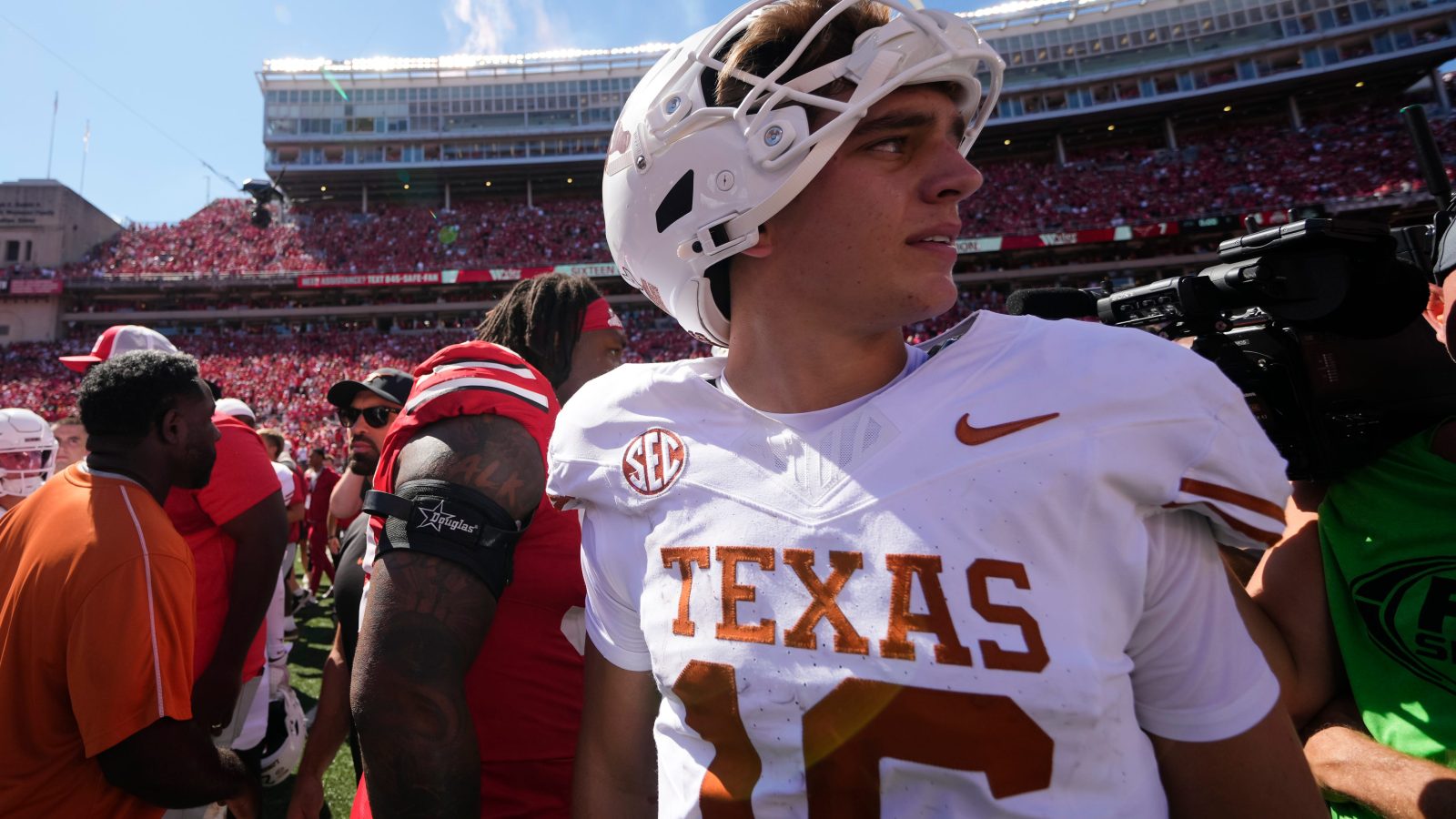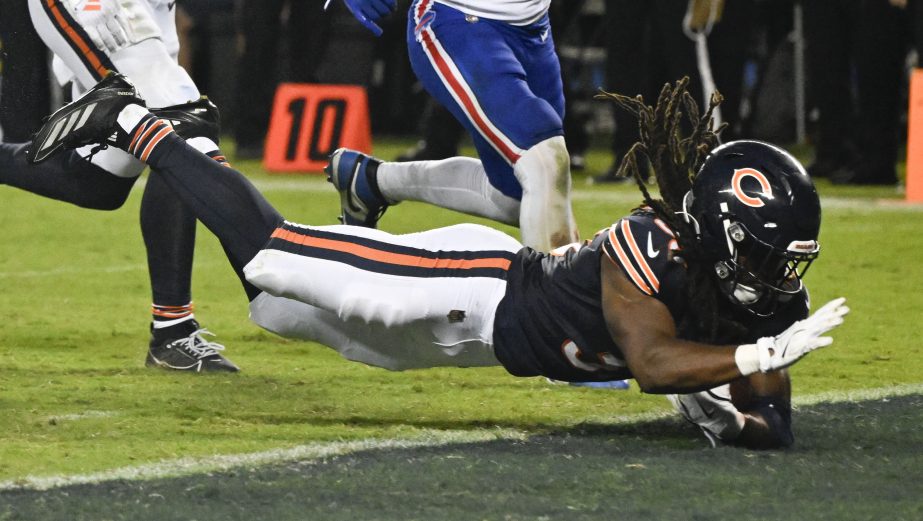Kalshi has no “immediate plans” to offer prop bets on college football, and there’s no guarantee its NFL props will be available for Week 1, as the prediction market opts for a “slow rollout,” a spokesperson told InGame.
The prediction market currently plans on event contracts for NFL player props being available in time for Week 1 matchups this Sunday. However, the spokesperson added that this “might be pushed back a week or two” as the business prepares final details. But college prop bets may not be available all season.
On Aug. 25, Kalshi self-certified to offer three new categories of event contract for both college and pro football: point spreads, totals, and touchdown scorer markets.
Self-certification is a process where an exchange registered with the Commodity Futures Trading Commission (CFTC) tells the CFTC that it is planning to offer a new type of market. If the CFTC doesn’t step in before a stated launch time — typically the end of business on the same day the self-certification was submitted — the market can go live.
The CFTC did not take any action regarding the spreads, totals, or touchdown markets, meaning Kalshi is free to offer all three, at least as far as the CFTC is concerned.
The touchdown market included what would be Kalshi’s first player prop bets. They allow customers to bet on which player would score a touchdown, as well as bets on first touchdown scorers, next touchdown scorers, and the number of times a player scores.
However, while Kalshi quickly started offering bets on spreads and totals, bets on player touchdowns are still not available for the NFL, and weren’t available for college football’s first full week of activity.
That is likely to change soon for the NFL, but a Kalshi spokesperson told InGame: “We don’t have immediate plans to include player contracts for college football.”
Kalshi to roll out props slowly
The spokesperson added that Kalshi was opting for a “slow rollout” of player props overall.
Even when Kalshi does introduce bets on NFL players’ statistics, you may not be able to bet on quarterbacks’ passing touchdowns.
Kalshi’s “FOOTBALLTOUCHDOWN” market — the one that was self-certified in August and allows for bets on touchdown scorers — applies only to the player who possesses the ball in their opponents’ end zone, whether by rushing, receiving, or return. That means any touchdowns through the air are credited only to the receiver, and therefore there is not a way to bet on a player throwing for a touchdown.
Kalshi has also not yet self-certified any markets related to yardage or defensive statistics such as sacks or interceptions.
The prediction market still could self-certify a market for passing touchdowns, yardage, or any other statistics, and launch them soon afterward. In the case of point spreads and totals, Kalshi launched its new contracts the same day that it notified the CFTC it was self-certifying the new categories of contract.
It’s also not clear yet when, if at all, props may be available on Robinhood, which offers access to a number of Kalshi markets through its “predictions hub.” Robinhood was responsible for more than half of Kalshi’s trading volume during the second quarter of the year, the stock trading app’s Chief Financial Officer Jason Warnick said in an earnings call.
Robinhood users can bet on both NFL and college football game winners via Kalshi within the “predictions hub,” but they cannot bet on point spreads or totals so far. When it launched football contracts in August, a Robinhood spokesperson told InGame: “Right now we’re focused on offering contracts for the outcomes of all regular season pro football matchups and all regular season games from FBS Power 4 schools and independents.”
NCAA wants college props banned
College player props have been a contentious subject within traditional sports betting. The NCAA argues that they should not be allowed, in order “to protect student-athletes and to protect the integrity of the game.” States such as Ohio, Louisiana, and Maryland have opted to ban betting on college player props, and the proposed federal SAFE Bet Act includes a ban on them. Some within the sports betting industry have argued that bans risk pushing customers to make the same bets on offshore sportsbooks with less protection and integrity monitoring.
It’s not clear the extent to which Kalshi’s decision to not offer these bets at the moment is influenced by the concerns raised by the NCAA, as opposed to more commercial considerations like the level of liquidity — trade offers at competitive prices on both sides of the bet — on these markets.
The exchange model requires one party to choose a price for a trade, with the other party agreeing to take the bet at that price. In practice, everyday bettors are often reluctant to set a price, and so this work is often done by larger organizations called market makers, who may receive rebates or other incentives for offering trades.
CFTC reluctant to block new markets
All markets self-certified by a CFTC-registered exchange are subject to review. However, CFTC Acting Chair Caroline Pham noted that the regulator has never denied or taken action against a self-certified market in its 50-year history.
If the CFTC remains reluctant to block contracts of any kind, then Kalshi may have to make its own choices about what kind of bets should be allowed and what should not. It may be more wary to offer products that licensed sportsbooks within certain states are prohibited to offer, in case this would encourage regulators in those states to ramp up enforcement activity against the exchange. Many regulators already believe Kalshi is operating illegally by offering event contracts on sports.
Kalshi is already engaged in multiple lawsuits over the legality of its sports event contracts, suing the states of Maryland, Nevada, and New Jersey in three different cases, after all three tried to prevent the exchange from offering sports contracts in their states.
The states all argue that Kalshi’s sports event contracts are a form of unlicensed sports betting. Kalshi argues that the contracts are legal under the federal Commodity Exchange Act, and says that this supersedes state law.
Other states such as Ohio and Arizona have sent Kalshi cease-and-desist orders, but have not taken action to enforce them. So far, Kalshi’s contracts still remain available in all 50 states.








